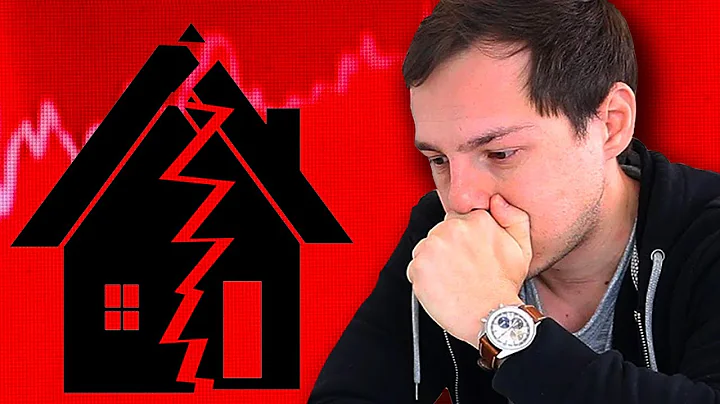
For Financial Street , how to solve the problem of "achieving the balance of leverage liabilities and assets" deserves attention.
Text/Daily Financial Report He Qiang
Since the second half of last year, the real estate market has continued to cool down, coupled with the impact of the epidemic lockdown, the sales performance of most real estate companies has dropped significantly year-on-year, and Financial Street is no exception. Performance shows that sales in 2021 will be 33.9 billion yuan, a year-on-year decrease of 16.7%; in the first quarter of this year, sales dropped by nearly 50%.
html On May 30, Financial Street (000402.SZ) announced that it plans to issue corporate bonds of no more than 1.07 billion yuan on June 1. The bonds are divided into two types: "22 Gold Street 05" and "22 Gold Street 06" Variety, term is 5 (3+2) years, interest rate range is 2.7%-3.7%.As a real estate company controlled by the State-owned Assets Supervision and Administration Commission of Xicheng District, Beijing, Financial Street has obvious financing advantages. According to statistics from the "Daily Financial Report", since 2022, Financial Street has issued "22 Jinjie 01", "22 Jinjie 03", " Several bonds including "22 Financial Street 04" and "22 Financial Street MTN001" raised a total of 3.24 billion yuan.
As far as the Financial Street itself is concerned, the reduction in sales returns will put pressure on its liquidity to a certain extent. From the end of 2021 to the end of the first quarter of 2022, Financial Street's cash decreased by 5.52 billion yuan, but smooth financing channels eased the liquidity pressure caused by declining sales.
What’s interesting is that according to the Financial Street’s first quarter report this year, the company’s operating income and net profit increased by 210.48% and 67.7% respectively year-on-year. Even excluding non-net profit, the year-on-year growth was as high as 819.62%. Such results are really surprising.
The reason is mainly due to the low base of the previous year and the large increase in non-recurring gains and losses of and . After further understanding, Financial Street's non-recurring profits and losses have continued to increase in recent years, so its performance is also considered "inflated".
"Puffy" performance
Data show that in the first quarter of 2022, the Financial Street's revenue and net profit were 4.7 billion yuan and 934 million yuan respectively, with year-on-year increases of 210.5% and 67.7% respectively. Regarding the "double harvest" of revenue and profit in the first quarter, Financial Street stated in the financial report that it was mainly because "the company's development and sales business has steadily advanced, and the operating income of the development and sales business has increased compared with the same period last year."
But a more important reason is that "the Beijing Financial Street Ritz-Carlton Hotel held by the company (jointly held by the company and its wholly-owned subsidiary Beijing Financial Street Ritz Real Estate Co., Ltd.) was sold to Beijing Financial Street Investment (Group) Co., Ltd., generating equity and asset transfer income”.
Financial Street announcement shows that on March 30 this year, Financial Street and its major shareholder Financial Street Investment (Group) Co., Ltd. (hereinafter referred to as " Financial Street Group ") signed the "Equity and Asset Transfer Agreement" to transfer Beijing Financial Street Li The Scarlton Hotel was transferred to Financial Street Group for 1.08 billion yuan.
"Daily Financial Report" found that if these effects are deducted, the net profit of Financial Street is actually only about 150 million yuan, ranking at least 24th among A-share real estate companies.
But in fact, in the Financial Street, which has millions of square meters of core properties in core cities, selling commercial and office assets has almost become one of its important weights to ensure profits in recent years. In 2020 and 2021, Financial Street achieved net profits of 2.218 billion yuan and 1.581 billion yuan respectively, while non-recurring gains and losses during the same period reached 2.210 billion yuan and 1.198 billion yuan. Because most of the profits come from non-recurring gains and losses, this is also the reason why Financial Street's performance is "inflated".
“Have a way” to dispose of assets
In addition to ensuring profits by disposing of assets, the Financial Street has also been continuously reducing liabilities through this method since 2020.
As a real estate company that started out as a commercial real estate development and operation company, Financial Street owns many high-quality assets. According to the announcement, as of the end of March, there were 1.113 million square meters of rental properties in the core areas of first- and second-tier cities in Financial Street. These properties will bring 1.75 billion yuan in revenue to Financial Street in 2021.
According to the "Daily Financial Report", as early as 2020, Financial Street negotiated with Beijing CITIC Real Estate to terminate the cooperation agreement on the B plot of Beijing CITIC City, and recovered the 8.6 billion yuan paid in advance.Later, at the end of 2020, Financial Street sold the Beijing Fengke Center, a joint venture developed with Vanke, to Ping An Life Insurance. The transaction consideration was 3.71 billion yuan. Through this transaction, Financial Street divested nearly 1.5 billion yuan of liabilities.
In September 2021, the company transferred all the equity and related bonds of its subsidiary Desheng Investment for a transfer price of 1.575 billion yuan. After a series of operations, one can’t help but think that after the three red lines policy, the financial street gradually transferred assets to reduce liabilities. In the first quarter of this year, the financial street’s financing cash flow had a net outflow of 2.41 billion yuan.
In addition, due to slow sales growth, the inventory turnover rate of Financial Street has not been high, and even hit a record low of 0.15 in 2020. Although it has rebounded to 0.23 in 2021, it is still lower than that of the same commercial real estate in the same period. Mainly Joy City’s 0.33 and R&F Properties’ 0.32.
"Orange" real estate companies
At the end of 2021, regulatory authorities including the central bank, China Banking and Insurance Regulatory Commission, and China Securities Regulatory Commission have expressed their stance to increase their support for real estate financing. However, due to insufficient expectations and confidence in the capital market, the financing of private real estate companies has not There are no obvious signs of improvement, mainly due to the reluctance of financial institutions to provide financing to private real estate companies.
During the same period, local governments also began to continuously optimize the pre-sale fund supervision system. It became less difficult for real estate company headquarters to withdraw surplus funds from projects. However, due to historical reasons, the pre-sale fund account supervision limit for most real estate projects was insufficient. In fact, there was no supervision for most real estate projects. The cash flow of real estate companies has brought about a substantial turnaround.
However, judging from the situation of real estate bond issuance in the first five months of 2022, companies with state-owned and central-owned enterprise backgrounds accounted for more than 90% of the bond issuance quota.
Now, after two years of reducing leverage, although the interest-bearing liabilities of Financial Street have been reduced, the collection of sales has continued to decline, and financing channels have not been blocked. The leverage ratio has not declined significantly, and the net debt ratio remains at More than 140%, the asset-liability ratio after excluding advances from accounts does not reach the standard. According to
data, as of the end of the first quarter, Financial Street’s net debt ratio was 154%, the cash to short-term debt ratio was 0.98 times, and the pre-deducted asset-liability ratio was 69.9%. In terms of the three red lines, it was still an “orange” real estate company.
Among them, the most troublesome thing is the cash to short-term debt ratio. You must know that at the end of 2021, the cash to short-term debt ratio of Financial Street was still 1.4 times, which also means that it is facing huge pressure in terms of short-term debt.
As of March 31, the Financial Street had short-term borrowings of 28.8 million yuan and non-current liabilities due within one year of 12.59 billion, while cash and cash equivalents after deducting restricted funds during the same period was only 12.173 billion yuan, far from Far from covering the debt.
To sum up, if there is no significant improvement in cash flow from future sales returns, in fact, all real estate companies, including central and state-owned enterprises, can only reduce leverage by disposing of assets, especially in the three red lines. The assessment period is about to end. As for the Financial Street, how to solve the problem of "achieving a balance between leveraged liabilities and assets" deserves investors' attention.





















